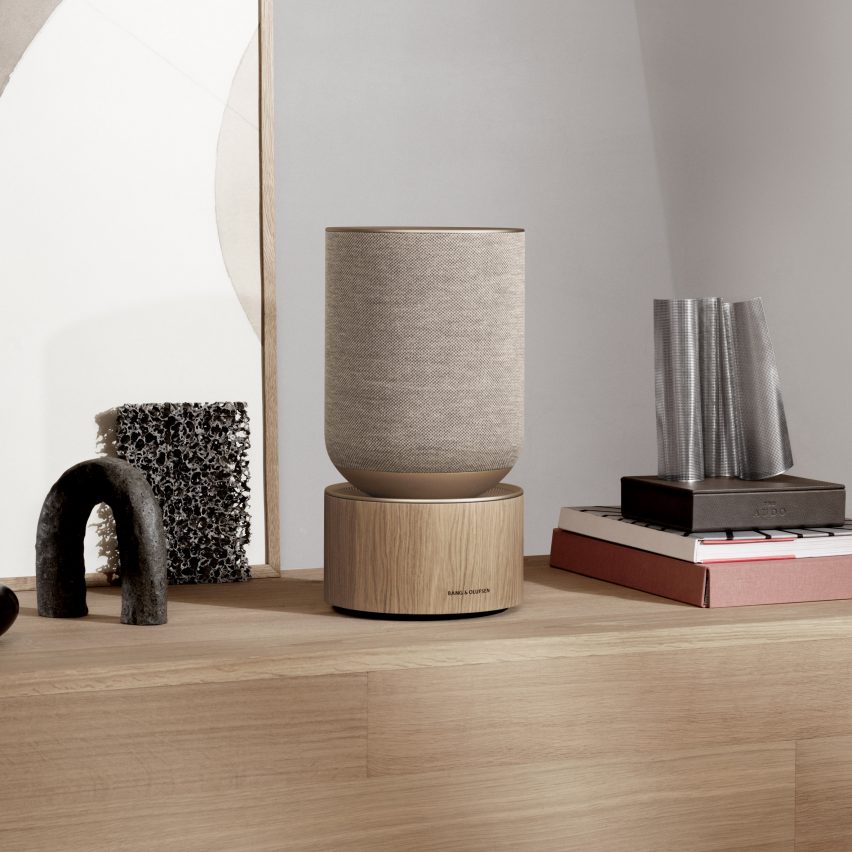
Benjamin Hubert and his studio Layer have designed Bang & Olufsen's sculptural Beosound Balance speaker, which has a two-part structure made from wood and textile.
The Beosound Balance speaker features a cylindrical top half wrapped in Kvadrat fabric and a base crafted from solid timber.
The shape and materials are meant to evoke the feeling of domestic objects and furnishings more than technology, in line with the trend for "soft" gadgetry that blends into the home.
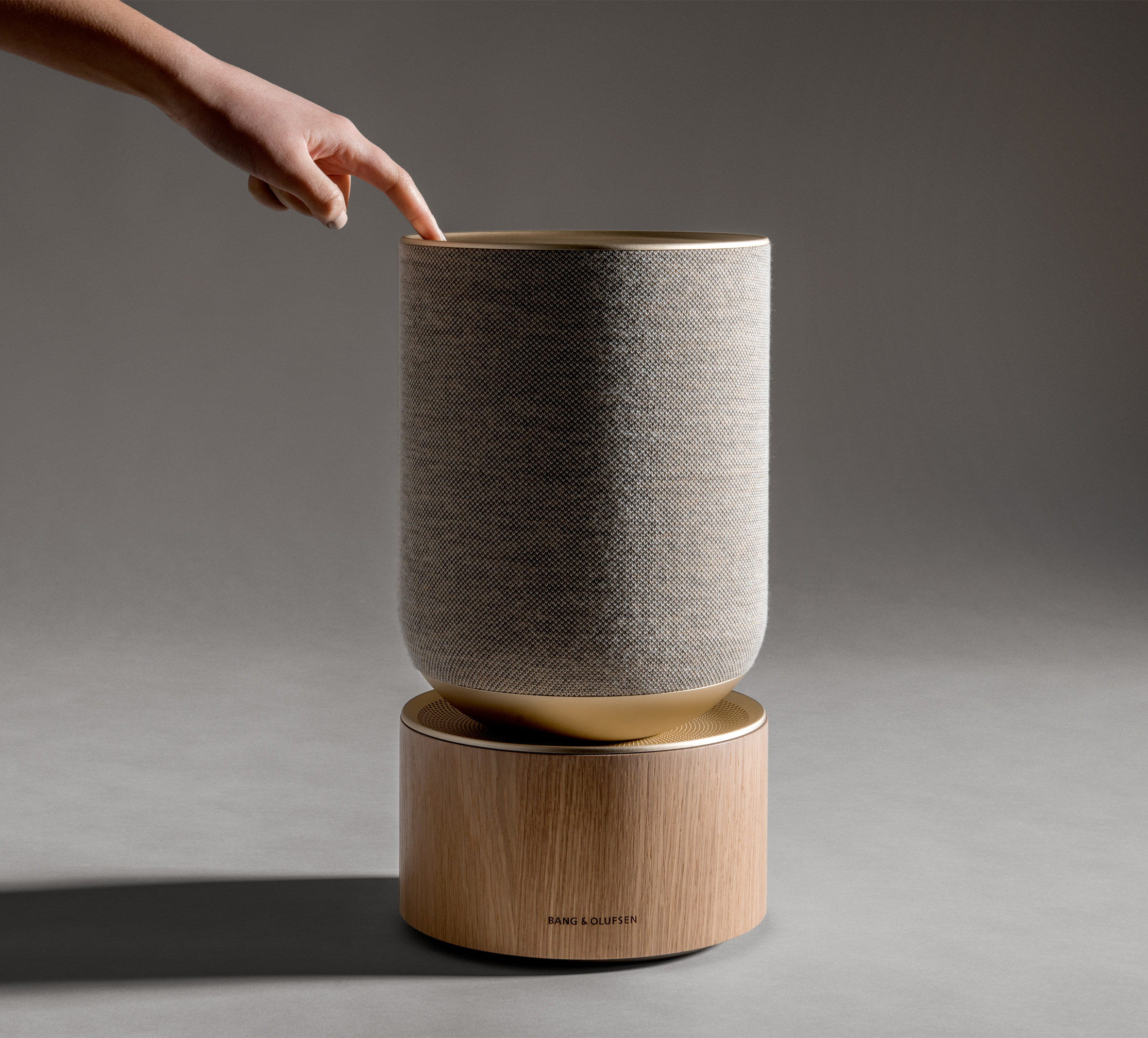
Layer describes the two-part shape as one that "disrupts the monoblock format of most speakers in the market", with the wood base appearing like a plinth for an artwork or a vase.
But the design also speaks to how the object functions – the heavy wood contains the bass speaker, while the lighter-looking fabric cylinder contains the mid- and top-end speakers.
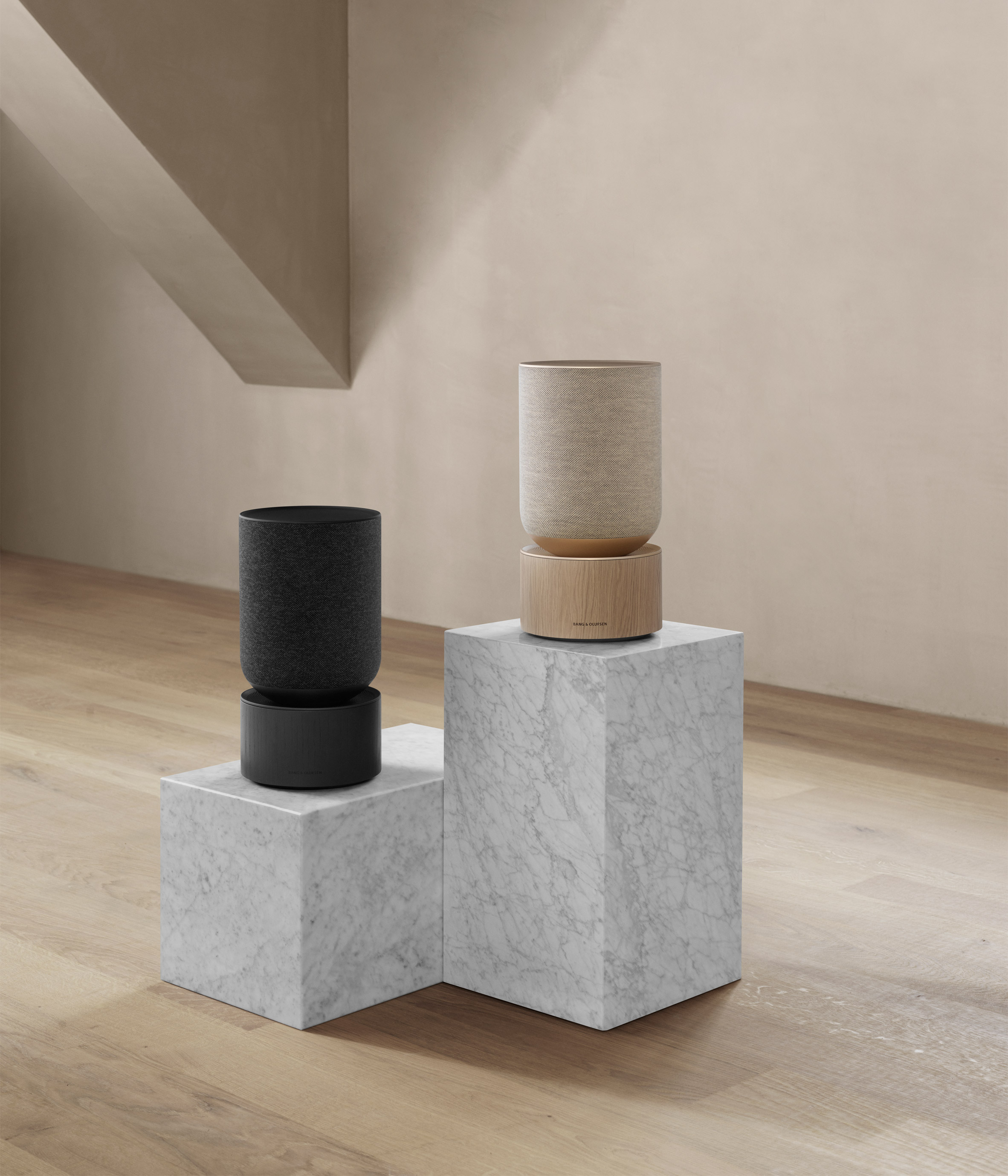
The omnidirectional bass driver is positioned vertically in the timber block and topped with a metal mesh dish, perforated in a Fibonacci sequence – a series of numbers that are created by adding up the two numbers before it.
The bass reflects off the metal, "maximising its acoustic potential and providing a room-filling, low-end rich sound," according to Layer.
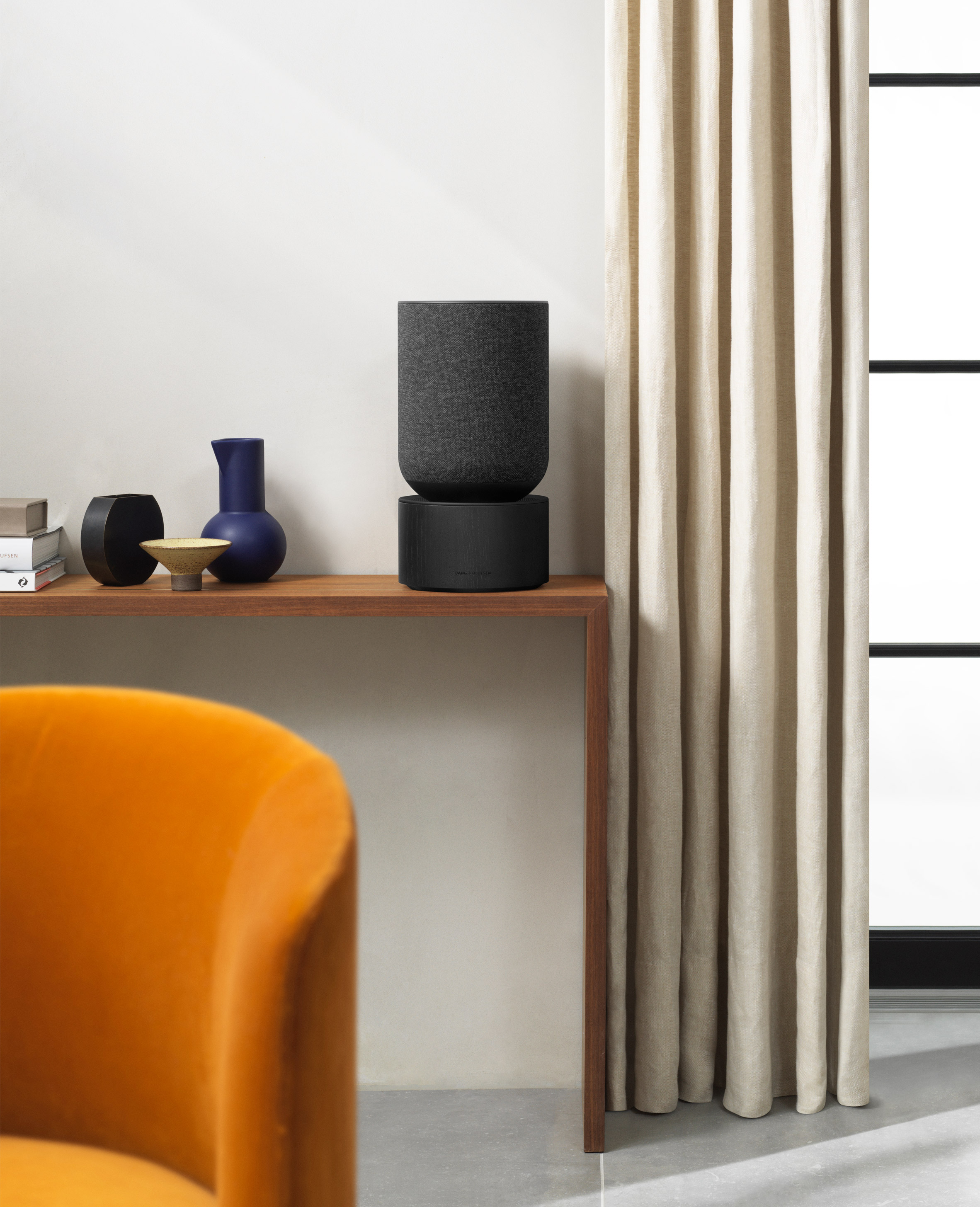
"With Beosound Balance for Bang & Olufsen, we wanted to create a sculptural interior object for the home, while still offering the performance of high-end audio equipment," said Hubert.
"The pure, geometric volumes are driven by the acoustic performance of the speaker, visually describing how the audio functions," he continued.
"This approach delivers a product that is intuitive to use and easily fits into the domestic environment without compromising on sound quality."
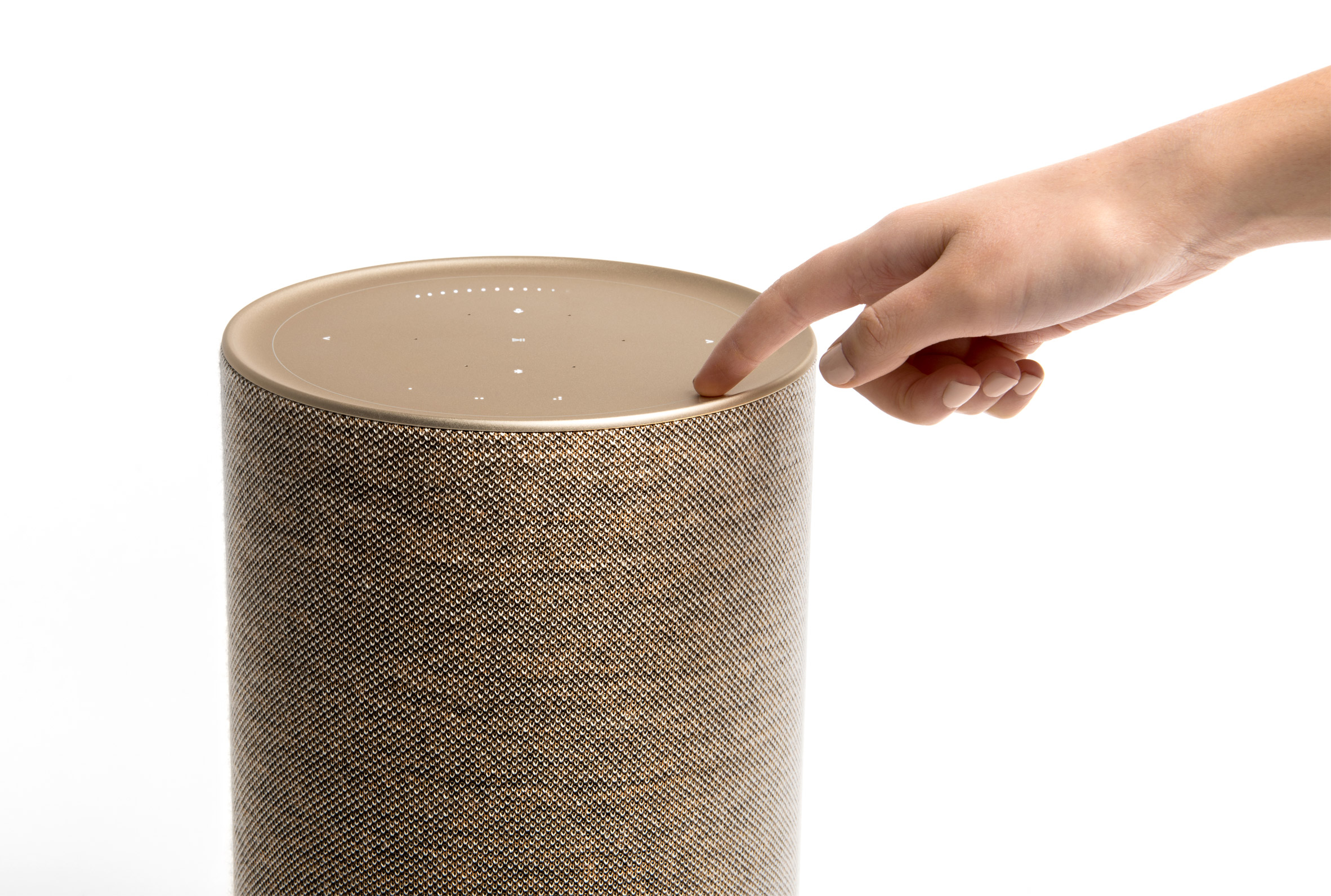
Standing 38 centimetres high, the Beosound Balance can sit on a floor, shelf or mantle, and comes in two colour options – natural oak or black oak.
Similar to other Bang & Olufsen audio products, the speaker features a subtle user interface that is nearly invisible when not in use but that lights up when a person approaches.
The touch interface is indicated by symbols laser-etched into the aluminium top, and the speaker also responds to voice commands. It comes with Google Assistant built in, with Amazon Alexa support coming later in 2020.
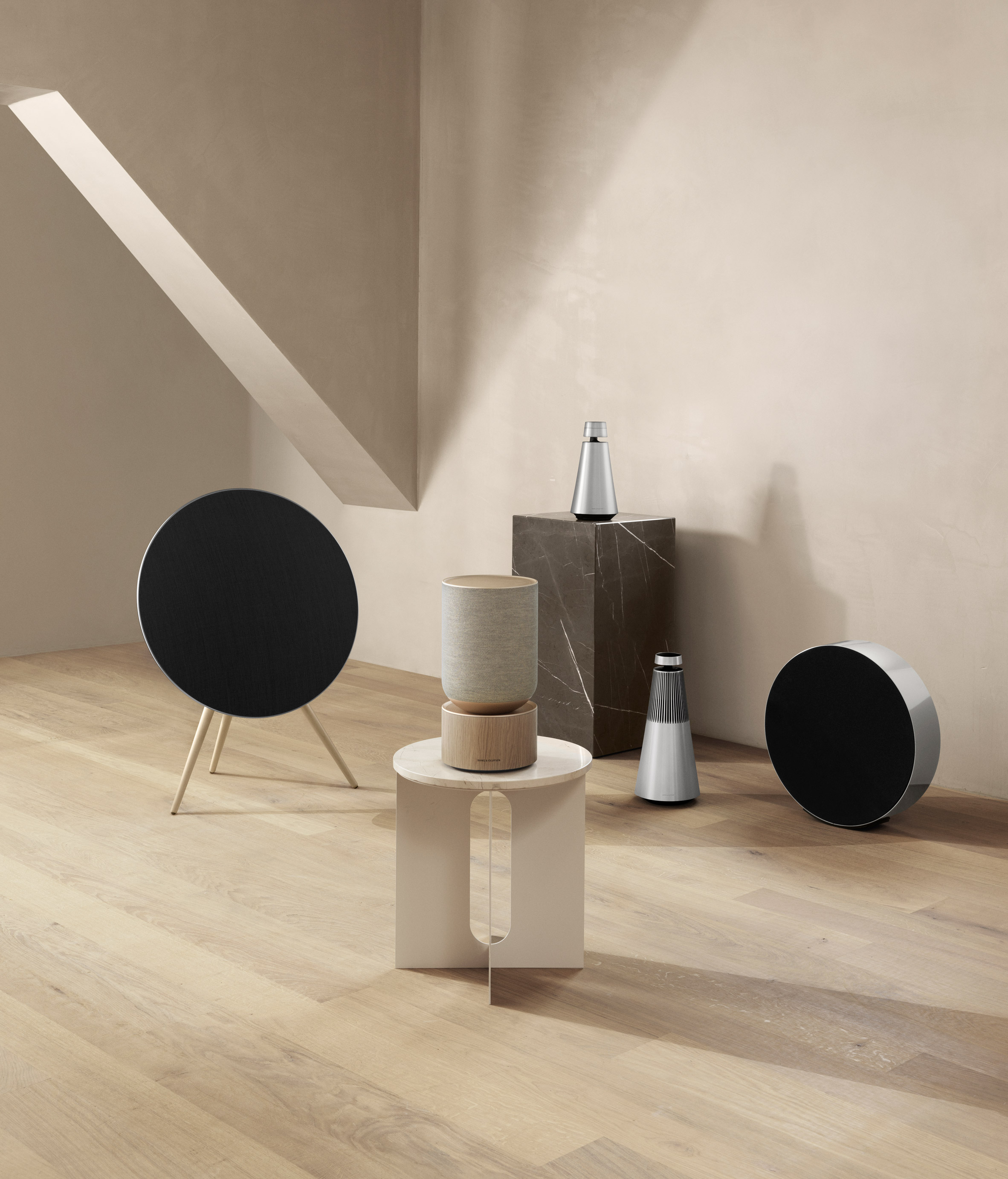
During its set-up, the Beosound Balance applies "active room compensation technology", meaning it analyses the room with an internal microphone and adds user-defined filters to tailor the sound to the space.
While both the interface panel and bass reflector are made from pressed aluminium, Layer likens their appearance more to tableware than traditional metal gadgets.
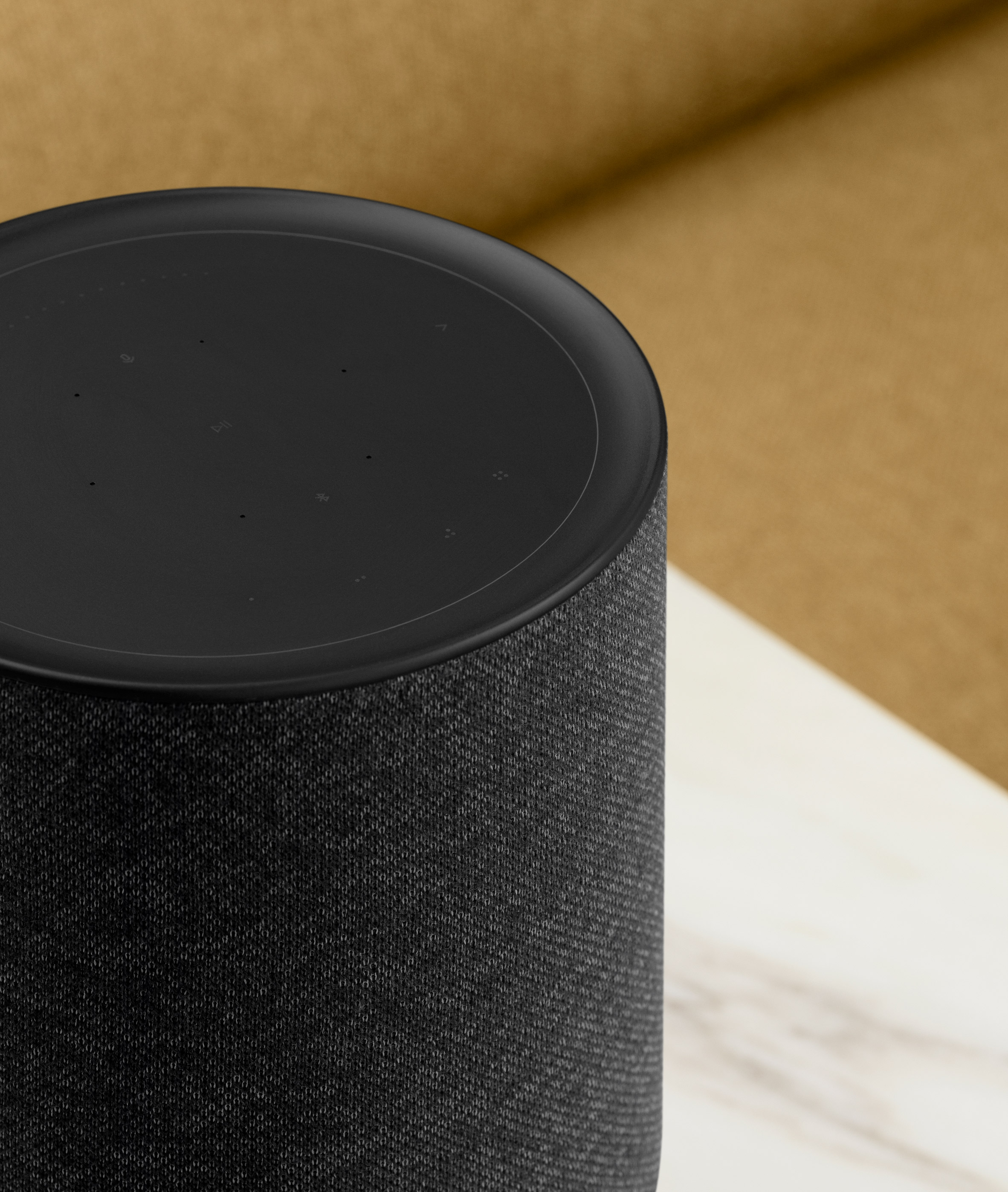
The London-based studio's commitment to maintaining a domestic approach extended to their process, which meant blocking and turning the FSC-approved timber as in furniture construction.
Bang & Olufsen often works with leading designers on its high-end products, and has previously released a wheel-like speaker by minimalist Michael Anastassiades.
This is its first product with Hubert's London-based design studio Layer, which is known for its innovative industrial design for brands including Airbus, Panasonic and Moroso, as well as start-ups like Nolii.
The Beosound Balance is set to launch at Milan design week, which has been postponed until June due to the Coronavirus.
The post Layer designs Bang & Olufsen speaker that "visually describes how the audio functions" appeared first on Dezeen.
from Dezeen https://ift.tt/2x7PgtA
No comments:
Post a Comment